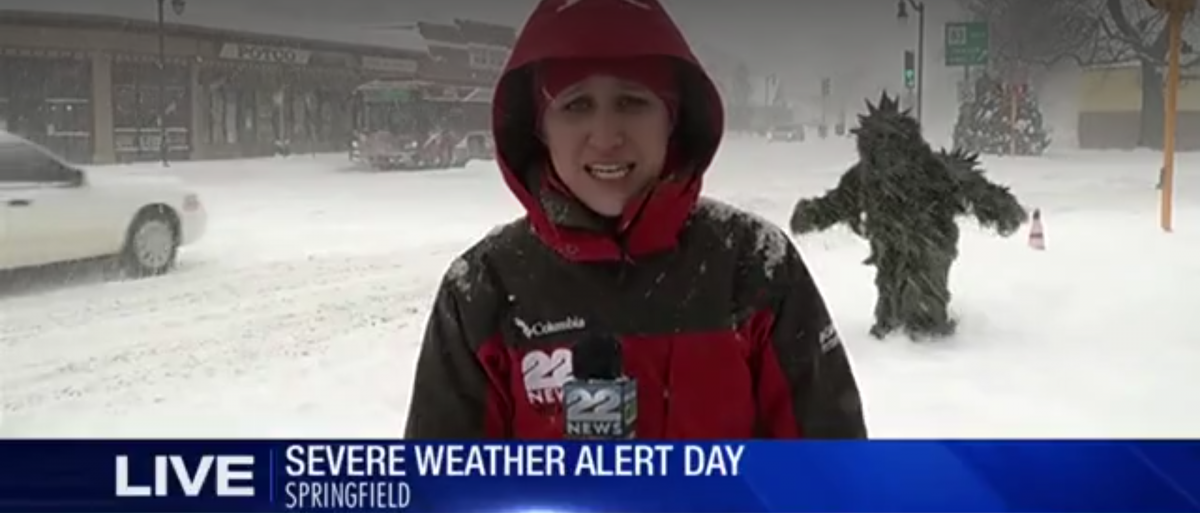Marijuana Industry Angered by White House Reversal
The cannabis industry was rattled after White House Press Secretary Sean Spicer said he expects the Department of Justice to increase enforcement of federal laws prohibiting recreational pot, even in states where it’s already legal.
Along with the District of Columbia, eight states have legalized recreational use among adults, including California, Maine, Massachusetts, and Nevada just this past November. That means one in five American adults can smoke, vape, drink, or eat cannabis as they please under state law. Meanwhile, more than half of the nation’s states have legalized medical marijuana despite federal laws prohibiting its sale. The industry is estimated to be worth north of
$6 billion and will hit $50 billion by 2026, according to Cowen & Co.
“Today’s news coming out of the administration regarding the adult use of cannabis is, of course, disappointing,” Derek Peterson, chief executive officer of marijuana cultivator Terra Tech Corp., said yesterday in a statement. “We have hoped and still hope that the federal government will respect states’ rights in the same manner they have on several other issues.”
States Respond to Trump’s Impending War on Legal Weed
Officials in Washington State are vowing to fight any federal crackdown on the state’s successful cannabis industry after White House press secretary Sean Spicer strongly implied that the Trump administration
may crack down on states with legal recreational marijuana.
“We will resist any efforts to thwart the will of the voters in Washington,” said the state’s attorney general Bob Ferguson in an interview with the
Seattle Times.
Washington State Governor Jay Inslee and AG Ferguson sent a letter last week to
U.S. attorney general and outspoken pot-hater Jeff Sessions, asking to meet and discuss the issue.
“Our state’s efforts to regulate the sale of marijuana are succeeding,” they wrote in the
letter, which was released Thursday. “A few years ago, the illegal trafficking of marijuana lined the pockets of criminals everywhere. Now, in our state, illegal trafficking activity is being displaced by a closely regulated marijuana industry that pays hundreds of millions of dollars in taxes. This frees up significant law enforcement resources to protect our communities in other, more pressing ways.”
It is worth noting that Washington State’s
recreational marijuana sales exceeded the $1.1 billion mark with sales tax revenue reaching $410 million in 2016.
This is not a fight Donald Trump and his administration should pick, Inslee
said earlier this month. “They would be on the wrong side of history.”
Ferguson said his lawyers are already “quite prepared” to argue against a federal crackdown but will begin reviewing strategies now that Spicer has sent the administration’s first signals about recreational marijuana.
“When he talks about ‘greater enforcement,’ I take that seriously,” said Ferguson, whose
legal team twice prevailed over the president’s lawyers in federal court when they halted Trump’s racist travel ban.
In his
comments on Thursday, Spicer said Trump does not oppose medical marijuana, but “that’s very different than recreational use, which is something the Department of Justice will be further looking into.”
This focus on legal recreational weed seems to be a departure from Trump’s previous statements in favor of states’ rights. But following that logic would imply that the White House is following a consistent policy.
Spicer’s comments came on the same day as a
Quinnipiac poll noted that 59 percent of Americans think marijuana should be legal and 71 percent would oppose a federal crackdown.
In Pueblo, Colorado,
reported the Associated Press, legal marijuana has helped fund college scholarships, parks, jail improvements and school drug prevention programs, said County Commissioner Sal Pace.
“Most Americans agree on this issue; let the states decide,” Pace said.
U.S. Rep. Earl Blumenauer, from Oregon weighed in: “I am deeply disappointed by Sean Spicer’s statement that he expects states to see ‘greater enforcement’ and crackdown on adult use of marijuana. The national prohibition of cannabis has been a failure, and millions of voters across the country have demanded a more sensible approach. I’m looking forward to working with the leadership of our newly formed cannabis caucus to ensure that Oregonian’s wishes are protected and that we end the failed prohibition on marijuana.”
In Nevada, which recently legalized recreational pot, Senate Majority Leader Aaron Ford
said in a statement Thursday that meddling in recreational pot laws would be federal overreach and harm state coffers that fund education.
“Any action by the Trump administration would be an insult to Nevada voters and would pick the pockets of Nevada’s students,” said Ford.
So, friends, it’s time to roll up our sleeves and defend the hard-fought gains of this movement.



